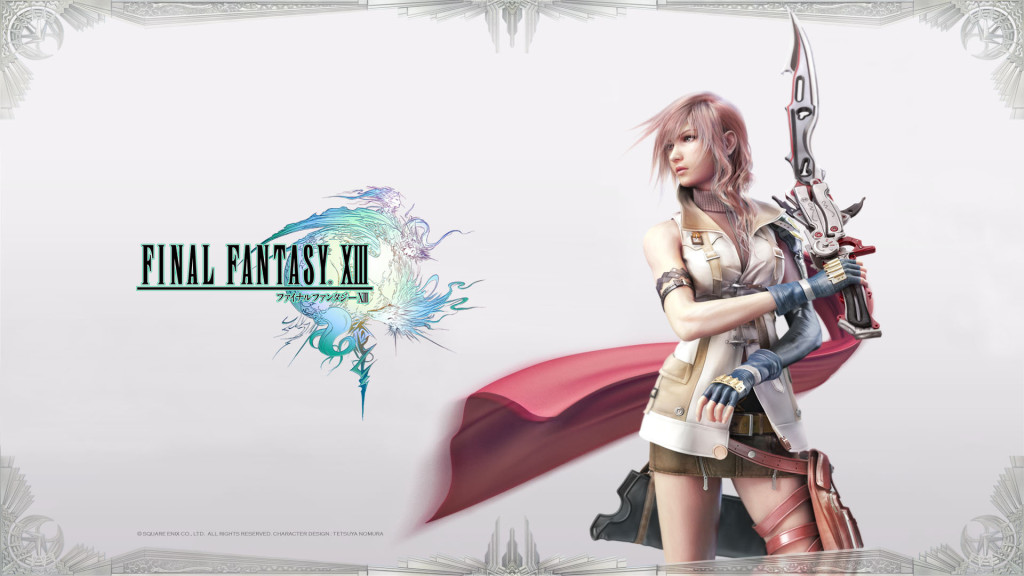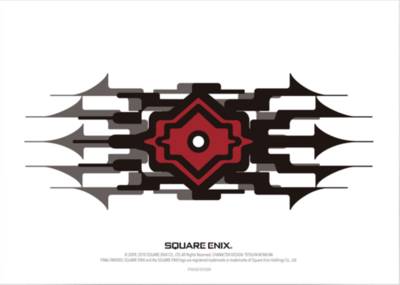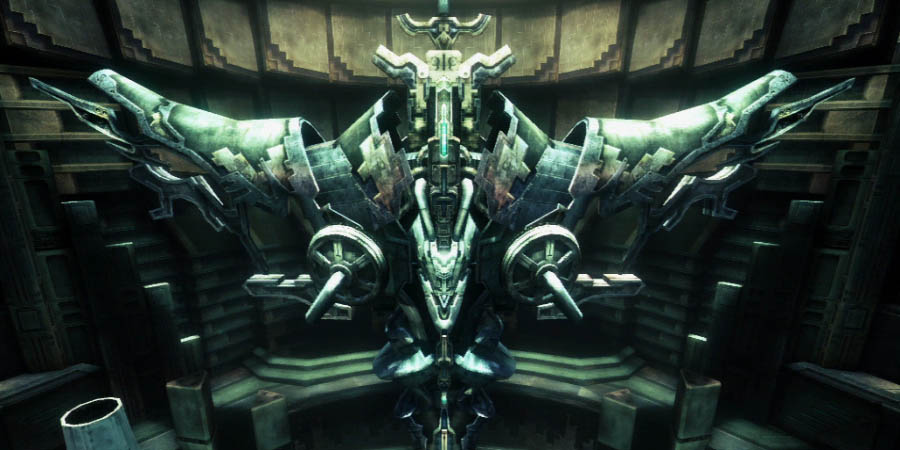Last updated on May 3, 2016
 Final Fantasy XIII enjoys a relatively horrible reputation these days. In its initial release, critics gave the game high scores in the 8/10 range – whether that’s due to the Final Fantasy name brand or not is certainly a conjecture we can’t prove either way. As for the actual people who bought and played their retail copies, opinions varied. Some liked the strangely focused take on the Final Fantasy concept, with its Call of Duty roller coaster feel and lack of “fluff”, for lack of a better term. Others hated the lack of exploration elements that matched previous games in the series – after Final Fantasy XII, the shift to the Very Pretty Tube appear a clear step backwards from Ivalice’s dangerous free-roaming world.
Final Fantasy XIII enjoys a relatively horrible reputation these days. In its initial release, critics gave the game high scores in the 8/10 range – whether that’s due to the Final Fantasy name brand or not is certainly a conjecture we can’t prove either way. As for the actual people who bought and played their retail copies, opinions varied. Some liked the strangely focused take on the Final Fantasy concept, with its Call of Duty roller coaster feel and lack of “fluff”, for lack of a better term. Others hated the lack of exploration elements that matched previous games in the series – after Final Fantasy XII, the shift to the Very Pretty Tube appear a clear step backwards from Ivalice’s dangerous free-roaming world.
And yet, I’ve always been fascinated with this quirky little (wait, I mean BIG) title. For one, it’s clearly experimental in its design and use of JRPG and video game tropes. You’ll probably never see a game this weird come out of the main Final Fantasy brand name, especially in a numbered sequel, ever again. In that sense, I simply enjoy it for what it is, rather than what it’s not. If you go into Final Fantasy XIII expecting a “brand” consistent experience, you’ll be highly disappointed. Heck, the Prelude doesn’t even appear anywhere, and that’s one of the most iconic themes in video games…well, ever. Final Fantasy XIII was meant to be a cleavage from the series’ previous history – we know that didn’t turn out that well, but that doesn’t mean the game deserves your ire.
Just for example: while the plot appears…well, either incomprehensible or stupid, depending on your mood at the time of day, it really isn’t. Like most Square-Enix games since the days of old, the developers use their familiar shock and awe tactics to immediately immerse you into a world and situation where you don’t know what’s happening. Much of the rest of the game takes place in that same state of ignorance about the greater world, because this is the story about a select group of people chosen by “fate”, to put it in more understandable, less neologistic terminology.

Unlike in most of these stories, however, the heroes and heroines of Final Fantasy XIII’s world find themselves in a conflict they didn’t start, do not intend to end, and simply don’t understand in any meaningful fashion. Yet, even though they’re thrust into extraordinary circumstances by the caprices of fate and other supernatural forces, they persevere and finish their newly created Focus, saving the world in the process.
The world of the game provides an interesting set-up: the fal’Cie, supposedly beneficent god-like being, control the workings of the planet. They give humanity the technologies they would, in our world, have to develop, test, and research: food, water, supplies, electricity. fal’Cie create a paradise of a world where humans can flourish. The original planet which humans inhabited, Gran Pulse, was a wild, untamed landscape. The fal’Cie, seeing this as an impediment to human civilization, carved a chunk out of Gran Pulse, protected it with divine barriers, and set aside a portion of the population to this new land – fittingly called ‘Cocoon”. Years of isolation have caused the citizens of Cocoon to treat Gran Pulse with paranoid notions of evil forces trying to make their way into Cocoon – a grand, Catholic Church-like government was erected, which issues an edict against contact with Gran Pulse by punishment of banishment to Gran Pulse. If you want to think of it as a post-9/11 treatise on fear, its affects and the like, you wouldn’t be far off the mark, I think.
 Hence, the events of the beginning of the game. At its start, we find a Pulse fal’Cie making its appearance in Cocoon – military forces are sent to evacuate and/or remove citizens of that region for fear of contamination. The Purge, so called, sparks the conflict and the Resistance. The main characters, as a result of their actions, are turned into l’Cie – basically, people who have been chosen for the fal’Cie to perform a specific task, or Focus. Failing to achieve this focus will result in all of them being turned into Cie’th – terrible, zombie-like creatures with no free will who forever wander, unable to die until their flesh finally rots out. Fulfilling the Focus, on the other hand, turns them into crystal, showing the completion of their divine-mandated task. In either case, being branded a l’Cie isn’t a good thing for that individual – in fact, they have been predestined to one of two fates from the time they are branded with the l’Cie marker until they either run out of time (for it has a time limit, apparently) or they turn into Cie’th.
Hence, the events of the beginning of the game. At its start, we find a Pulse fal’Cie making its appearance in Cocoon – military forces are sent to evacuate and/or remove citizens of that region for fear of contamination. The Purge, so called, sparks the conflict and the Resistance. The main characters, as a result of their actions, are turned into l’Cie – basically, people who have been chosen for the fal’Cie to perform a specific task, or Focus. Failing to achieve this focus will result in all of them being turned into Cie’th – terrible, zombie-like creatures with no free will who forever wander, unable to die until their flesh finally rots out. Fulfilling the Focus, on the other hand, turns them into crystal, showing the completion of their divine-mandated task. In either case, being branded a l’Cie isn’t a good thing for that individual – in fact, they have been predestined to one of two fates from the time they are branded with the l’Cie marker until they either run out of time (for it has a time limit, apparently) or they turn into Cie’th.
Not a very pleasant picture for our heroes, huh?
